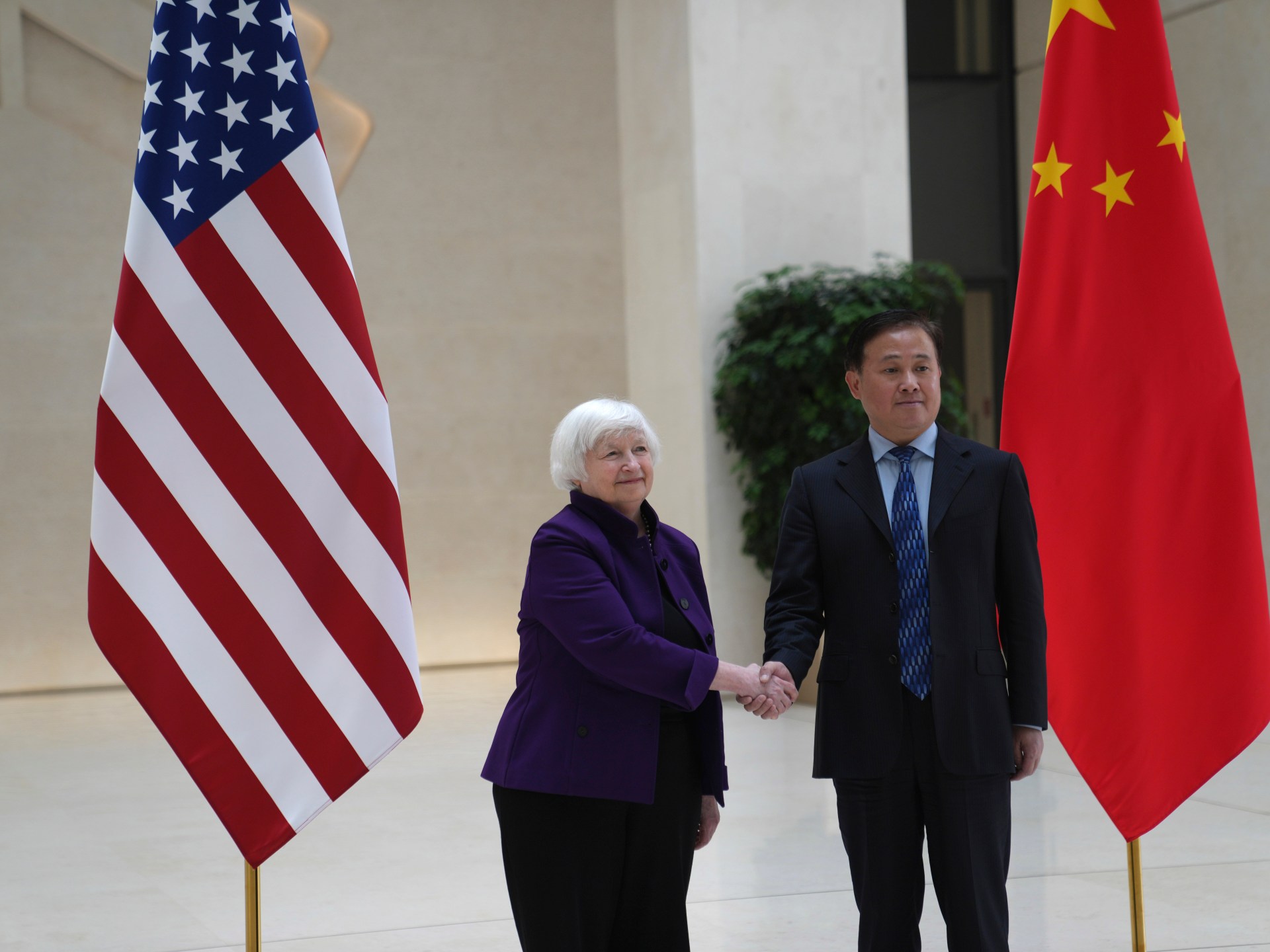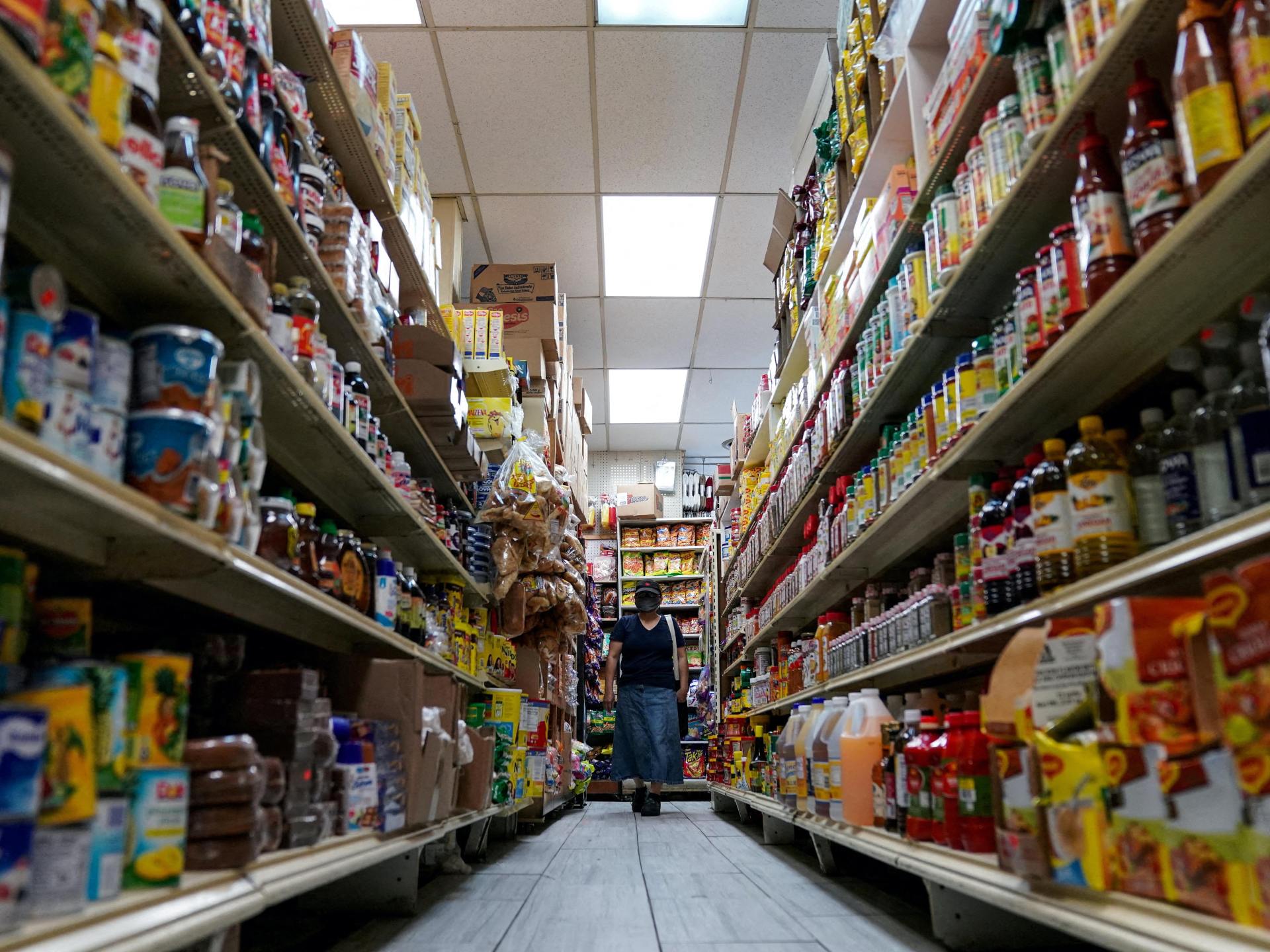From unfair trade to TikTok: US Treasury Secretary Yellen’s China trip | International Trade
US Treasury Secretary Janet Yellen and her team are leaving China and returning to the United States after trying to tackle the major questions of the day between the countries.
Here’s a look at what she tried to accomplish, what was achieved and where things stand for the world’s two largest economies:
Unfair trade practices
Yellen said she wanted to go into the US-China talks to address a major complaint of the administration of US President Joe Biden – that Beijing’s economic model and trade practices put US companies and workers at an unfair competitive disadvantage by producing highly subsidised solar products, electric vehicles and lithium-ion batteries at a loss, dominating the global market.
Chinese government subsidies and other policy support have encouraged solar panel and electric vehicle (EV) makers in China to invest in factories, building far more production capacity than the domestic market can absorb.
She calls this “overcapacity”.
Throughout the week of meetings, she talked about the risks that come from one nation maintaining nearly all production capacity in these industries, the threat it poses to other nations’ industries and how a massive rapid increase in exports from one country can have big impacts on the global economy.
Ultimately, the two sides agreed to hold “intensive exchanges” on more balanced economic growth, according to a US statement issued after Yellen and Chinese Vice Premier He Lifeng held extended meetings over two days in the southern city of Guangzhou.
It was not immediately clear when and where these exchanges would take place.
“It’s not going to be solved in an afternoon or a month but I think they have heard that this is an important issue to us,” she said.
Money laundering and related crimes
After several rounds of meetings, the US Treasury and the Chinese Central Bank agreed to work together to stop money laundering in their respective financial systems.
Nearly all the precursor chemicals needed to make the deadly substance fentanyl are coming from China into the US.
The US says exchanging information on money laundering related to fentanyl trafficking may help disrupt the flow of the precursor chemicals into Mexico and the US.
“Treasury is committed to using all of our tools, including international cooperation, to counter this threat,” Yellen said in a speech announcing the formation of the group.
The new cooperative between the US and China will be part of the two nations’ economic working groups, which were launched last September, and the first exchange will be held in the coming weeks.
TikTok
Efforts in the US to ban the social media app TikTok, owned by the Chinese parent company ByteDance, were raised initially by the Chinese during US-China talks, a senior Treasury official told the Associated Press news agency. The firm has in the past promoted a data security restructuring plan called “Project Texas”, which it says sufficiently guards against national security concerns.
However, US lawmakers have moved forward with efforts to either ban the app or force the Chinese firm to divest its interest in the company, which the White House has supported. In China this week, it was evident there was little movement on the issue.
Yellen said at a news conference Monday that she supported the administration’s efforts to address national security issues that relate to sensitive personal data.
“This is a legitimate concern,” she said.
“Many US social apps are not allowed to operate in China,” Yellen said. “We would like to find a way forward.”
Financial stability
On the second day of Yellen’s trip to China, the US and China announced an agreement to work closely on issues related to financial stability, in that US and Chinese financial regulators agreed to hold a series of exercises simulating a failure of a large bank in either of the two countries.
The aim is to determine how to coordinate if a bank failure occurs, with the intent of preventing catastrophic stress on the global financial system.
Yellen said several exercises have already happened.
“I’m pleased that we will hold upcoming exchanges on operational resilience in the financial sector and on financial stability implications from the insurance sector’s exposure to climate risks.
“Just like military leaders need a hotline in a crisis,” Yellen said.
“American and Chinese financial regulators must be able to communicate to prevent financial stresses from turning into crises with tremendous ramifications for our citizens and the international community.”
What she ate
Yellen is something of a foodie celebrity in China ever since she ate mushrooms that can have psychedelic effects in Beijing last July.
This trip was no different.
High-ranking Chinese officials brought up her celebrity ahead of important meetings – Premier Li Qiang noted in his opening remarks that Yellen’s visit has “indeed drawn a lot of attention in society”, with media covering her trip and her dining habits.
And social media was abuzz, following her latest movements around Guangzhou and Beijing.
This time in Beijing, Yellen ate at Lao Chuan Ban, a popular Sichuan restaurant. She also had lunch with Beijing Mayor Yin Yong at the Beijing International Hotel.
On Monday evening, her last night in China, Yellen visited Jing-A Brewing Co in Beijing – co-founded by an American – where she ordered a Flying Fist IPA, a beer made with US hops.
Check out our Latest News and Follow us at Facebook
Original Source





